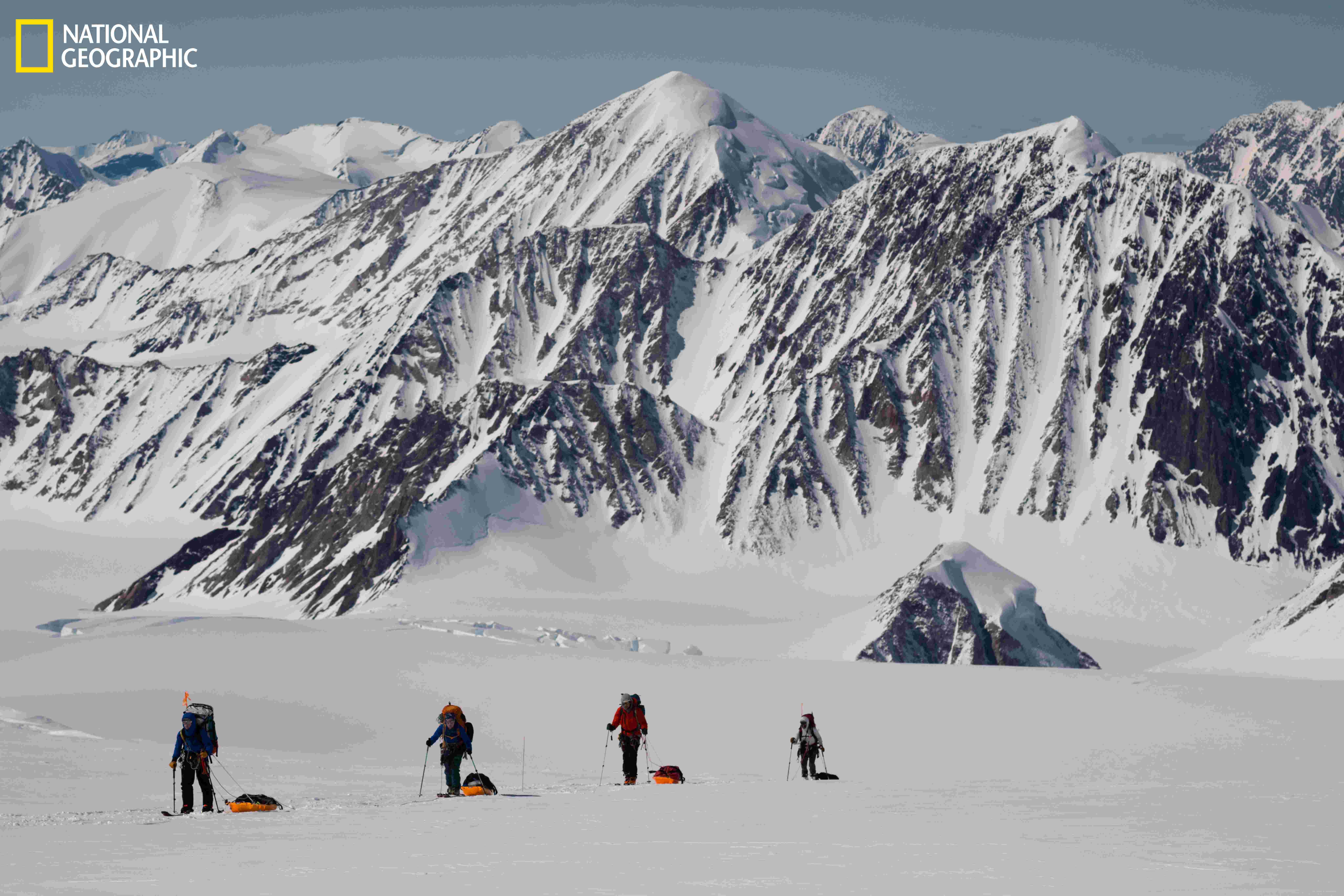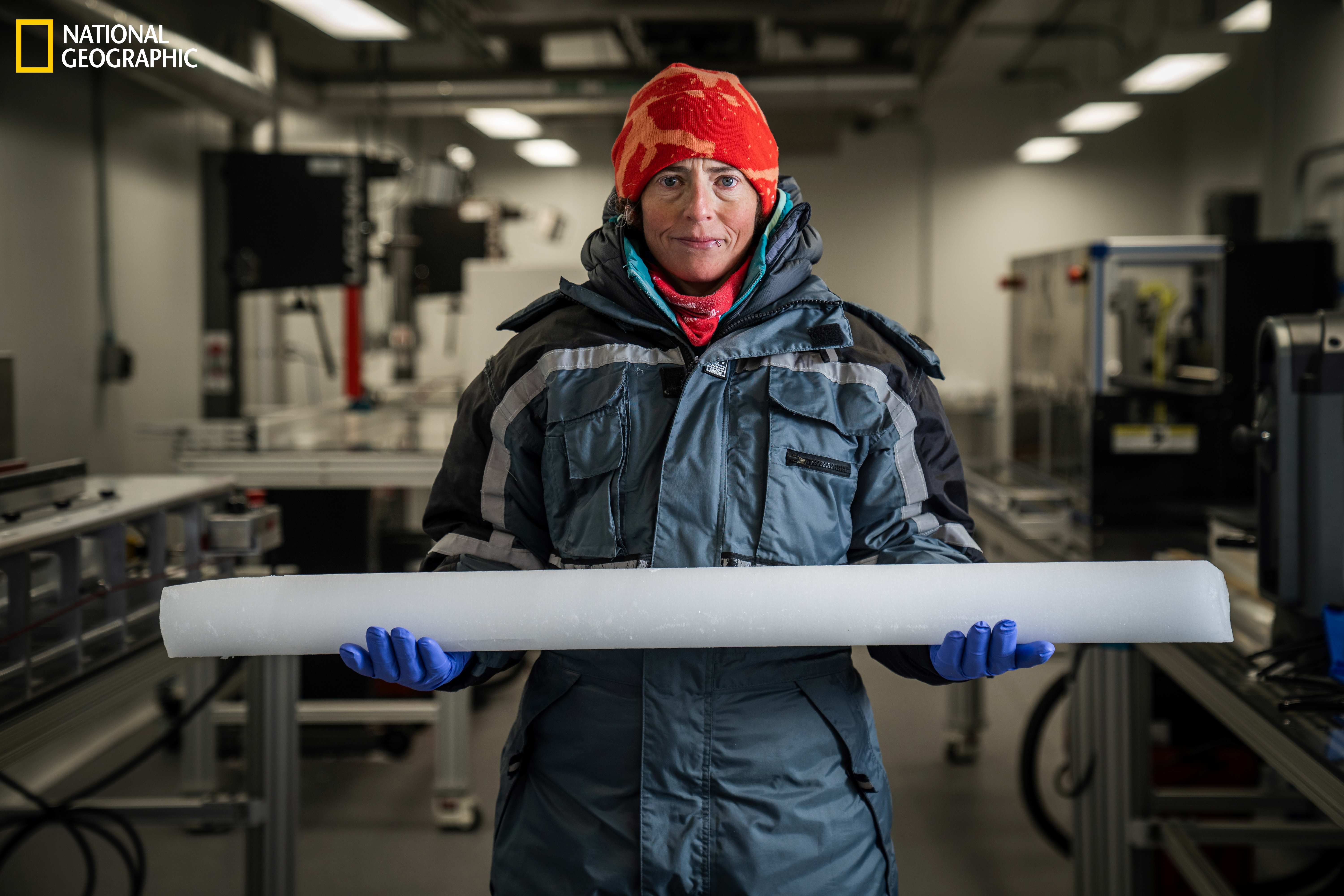
The expedition team climbs towards camp 1 on Mt. Logan in Kluane National Park and Reserve. Credit: Leo Hoorn/National Geographic
In 2022, National Geographic Explorer and ice core scientist Alison Criscitiello led a team of international scientists on a daring expedition to climb Mount Logan – a long and arduous ascent which 50% of climbers don’t complete. The team braved -20 to -40 C temperatures, strong winds, complex icefalls, and intense snowfall to reach the summit plateau and successfully extract an ice core from the mountain.
The ice core holds critical historical climate data that could reveal how the region may respond to future change. This information is vital to studying the climate, especially as our planet warms.
Criscitiello’s herculean effort is part of Perpetual Planet Expeditions, a partnership between the National Geographic Society and Rolex to document the impacts of climate and environmental change on our planet’s vital life support systems.
The expedition was documented and made into a film by the Society’s Impact Story Lab, an award-winning creative unit that combines world-class storytelling with social and behavioral science in order to drive positive change. The documentary, For Winter, captures the ascent as well as Criscitiello’s home life, and what it’s like to balance the demands of her job with kids as well as being a LGBTQ+ woman in STEM.
Criscitiello is the Director of the Canadian Ice Core Lab at the University of Alberta and co-founder of Girls on Ice Canada, a tuition-free program that supports the next generation of female scientists and mountaineers.
She hopes the film inspires people to focus on the solutions to mitigate against climate change.
“In my position, I hear a lot of climate anxiety and despair. It’s time to feel the opposite and do the opposite. This is the time to make the change.”
This particular climb of Mount Logan was record breaking. Criscitiello collected the deepest non-polar ice core ever collected at an altitude over 17,000 feet. In addition, Mount Logan is the highest peak in Canada.
The film’s executive producer and vice president of the Society’s Impact Story Lab, Vanessa Serrao, said she hopes the film shifts the narrative of science, exploration and conservation to foster a more inclusive community. In fact, the film is named after Criscitiello’s three-year-old daughter, Winter, and showcases the hope that she too can do anything — even the seemingly impossible.
“Alison’s story shows that this is not only possible, but necessary. We all have a place in solving the planet’s most pressing issues,” said Serrao.
Author: Porter O'Brien Agency

National Geographic Explorer Alison Criscitiello holds a portion of her 2022 Mt. Logan ice core in the Canadian Ice Core Lab at the University of Alberta. Credit: Leo Hoorn/National Geographic
Located in the Canadian Rocky Mountains, the Banff Centre Mountain Film and Book Festival is a globally recognized event and tour celebrating the beauty, adventure, and culture of mountains globally. Join us at Banff Centre for Arts and Creativity from November 1 – 9, 2025 for the 50th Anniversary of the Festival in Banff, Alberta! The nine-day festival showcases live events with adventurers, authors, photographers, and filmmakers sharing their inspiring stories.
Online films are also available to watch throughout the year on Banff on Demand.
To find out more about the Festival, World Tour, and related programs, please visit banffcentre.ca/banffmountainfestival.
Media Contact
Interested in reporting on this or any other Banff Centre story? Members of the media can reach out to communications@banffcentre.ca for more information.